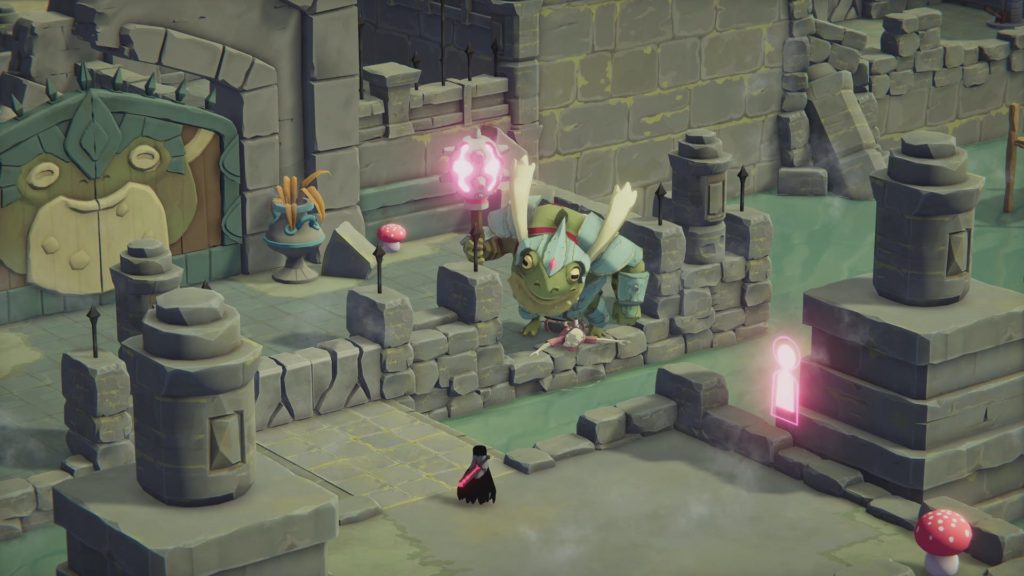
Provided by Devolver Digital
Death’s Door Lets Its Villains Die With Dignity
I don’t think I could qualify my relationship with my grandfather as complicated. He was a staple in my youth as the elder figure in most family gatherings. As we both got older, I stopped seeing him around because he stopped being able to come around. We also started hearing more and more about his problematic relationship with the family, which didn’t encourage me to rebuild the communication bridge.
When he died earlier this year, I couldn’t join due to the joint complications COVID-19 put on public gatherings, and my older, disabled brother’s own medical complications. But I saw a recording of the ceremony–the sort of celebration that’s drenched in a macabre hopefulness that only happens at the end of one’s life. He was surrounded by as many people as they could fit in a tiny church in Paterson, NJ, all with stories of praise and remembrance that people who’ve known him for decades chose to tell instead of the less flattering ones they may have wanted to.
They don’t forget about his trespasses. For some in that room, they left wounds too deep to truly hide. But some can walk away hoping that their grudges will lay in the casket with him, driven six feet under foot and far away forever. That little bit of confidence gives them the strength to look at the man’s face for the last time ever, and focus on the good times.
What does any of that have to do with Death’s Door? Stick with me here, folks.
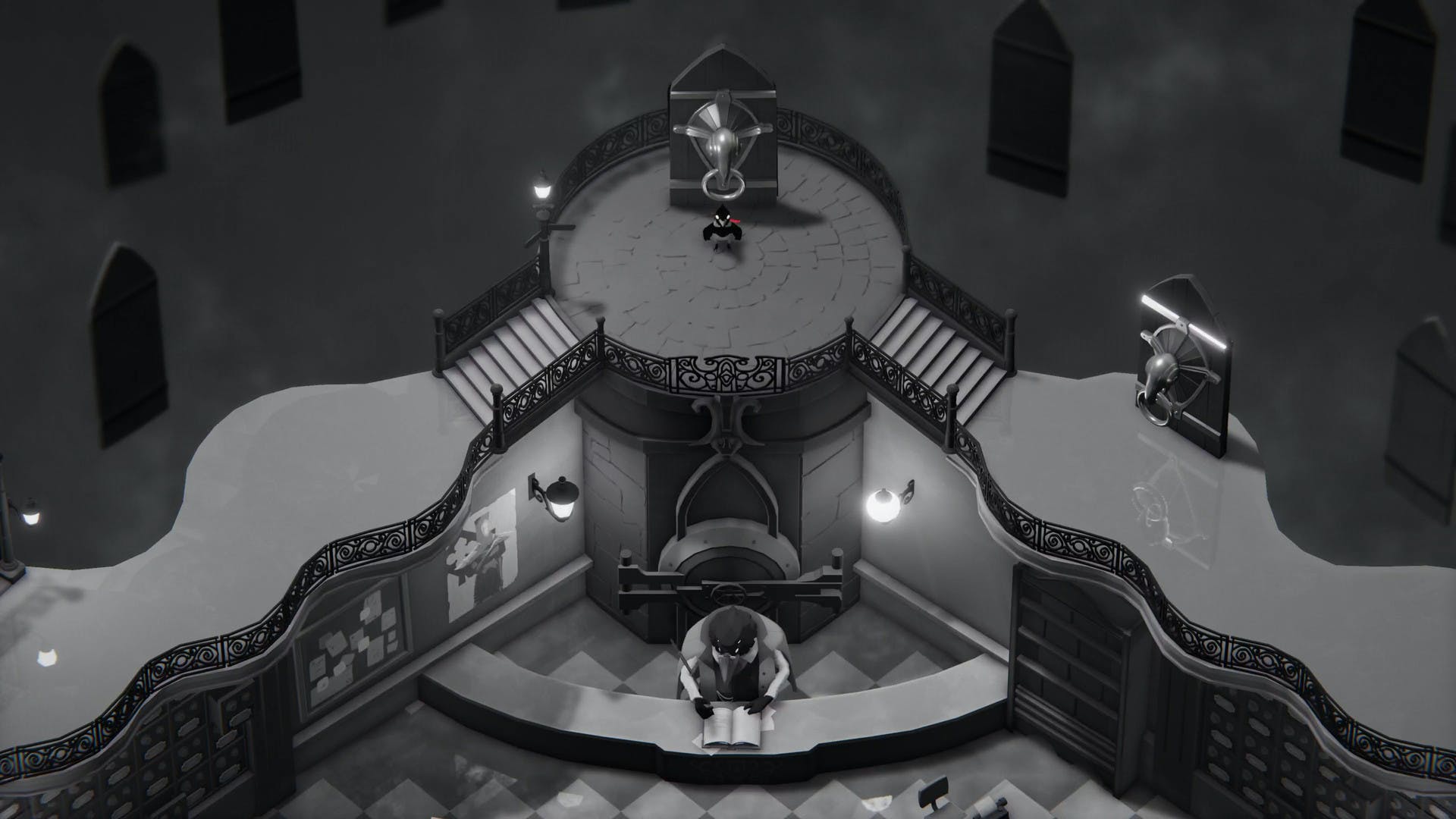
There’s a hearse-load to like about Death’s Door, the charming action adventure game from the folks who created Titan Souls. Its sparse and moody world is teeming with things to find and foes to fight on your quest to reap some very big souls from some very bad people.
I came to Death’s Door for the same reason’s everyone did, no doubt. It looked great in the trailers. The reviews raved about it. It’s hard to beat the simple, tried and true Legend of Zelda formula in an action adventure game. Like most of my Zelda experiences, I didn’t expect to take much from the story I’d be trudging through. That might still be true after seeing the credits 15 hours into playing it, but Death’s Door has just the right touch of mood and motif to make the “death is bureaucracy” trope nearly perfected by tv shows like Dead Like Me hit solid on my calloused grey matter. All that said, I’m months removed and can’t get a series of small, narrative moments out of my head.
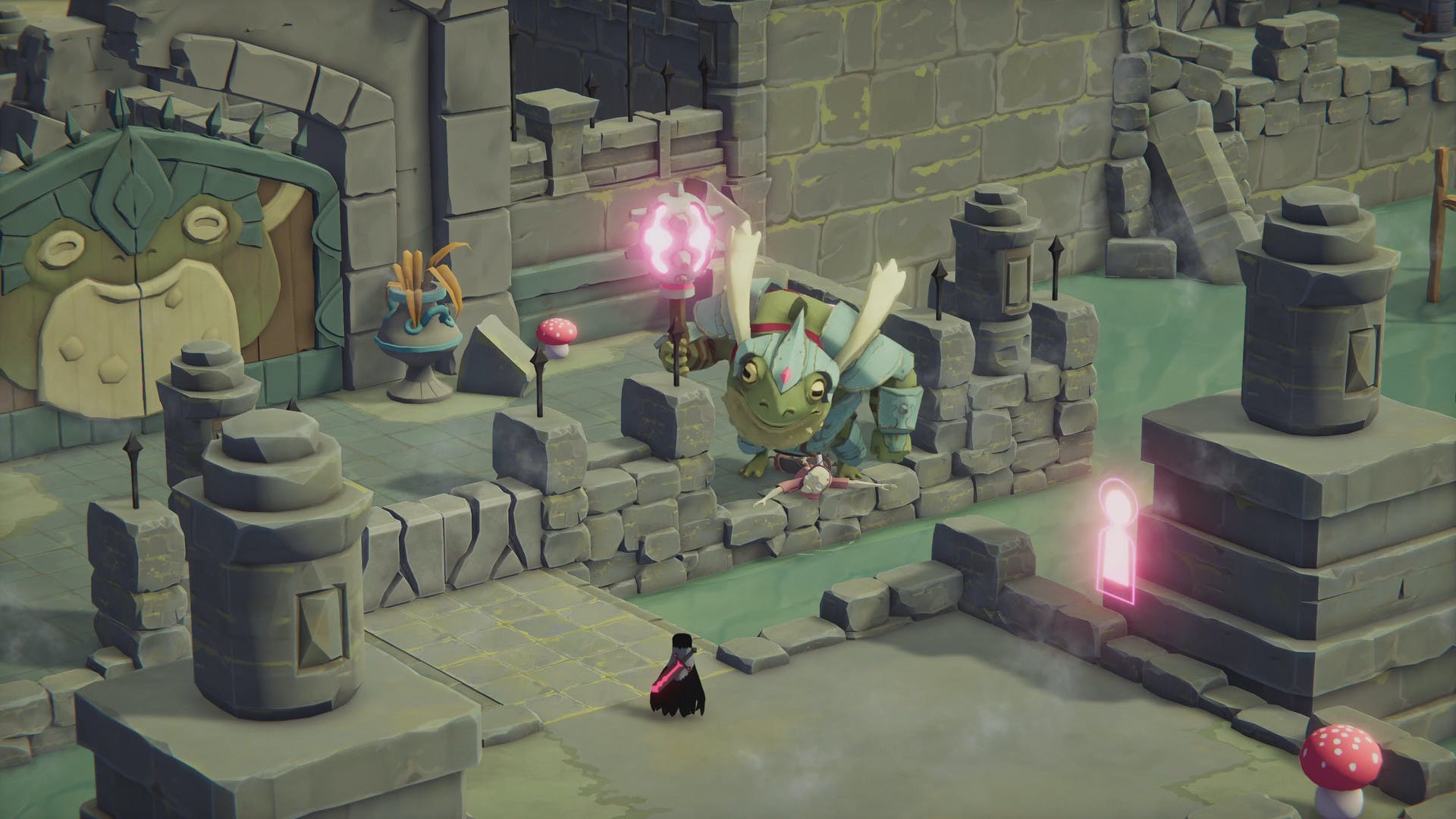
After a harrowing battle with the first boss, the tyrannical Urn Witch, you reap her soul as is necessary for your ultimate task. But instead of just letting that be that, in saunters Steadhone, local gravedigger and death enthusiast. What follows next is a shockingly somber and touching eulogy not for the monster I just killed, but the woman that would become her. The Ceramic Sorceress was a menace, but she was also a grandmother who fell down a hole of dark magic to protect her kin. Humanizing the enemy is not a new concept in games, but this particular presentation stuck with me, a person who recently lost someone and had complicated feelings about it.
Video games love setting you loose to kill enemies in droves. Many of them even make these enemies morally challenging or at least very fuckable. But tarely do you find minutes of game time dedicated to recognizing them with dignity after the deed is done. Not excusing them. Not downplaying their harm. But acknowledging that now that the threat of them is gone and the healing can now begin, that it’s finally safe to admit that these people had a profound effect on your life for bad but also for good. In a very online world where people get very limited opportunities to explore these twisting and complicated human emotions publicly, watching a video game do it in such a relatable way felt ironic and refreshing.
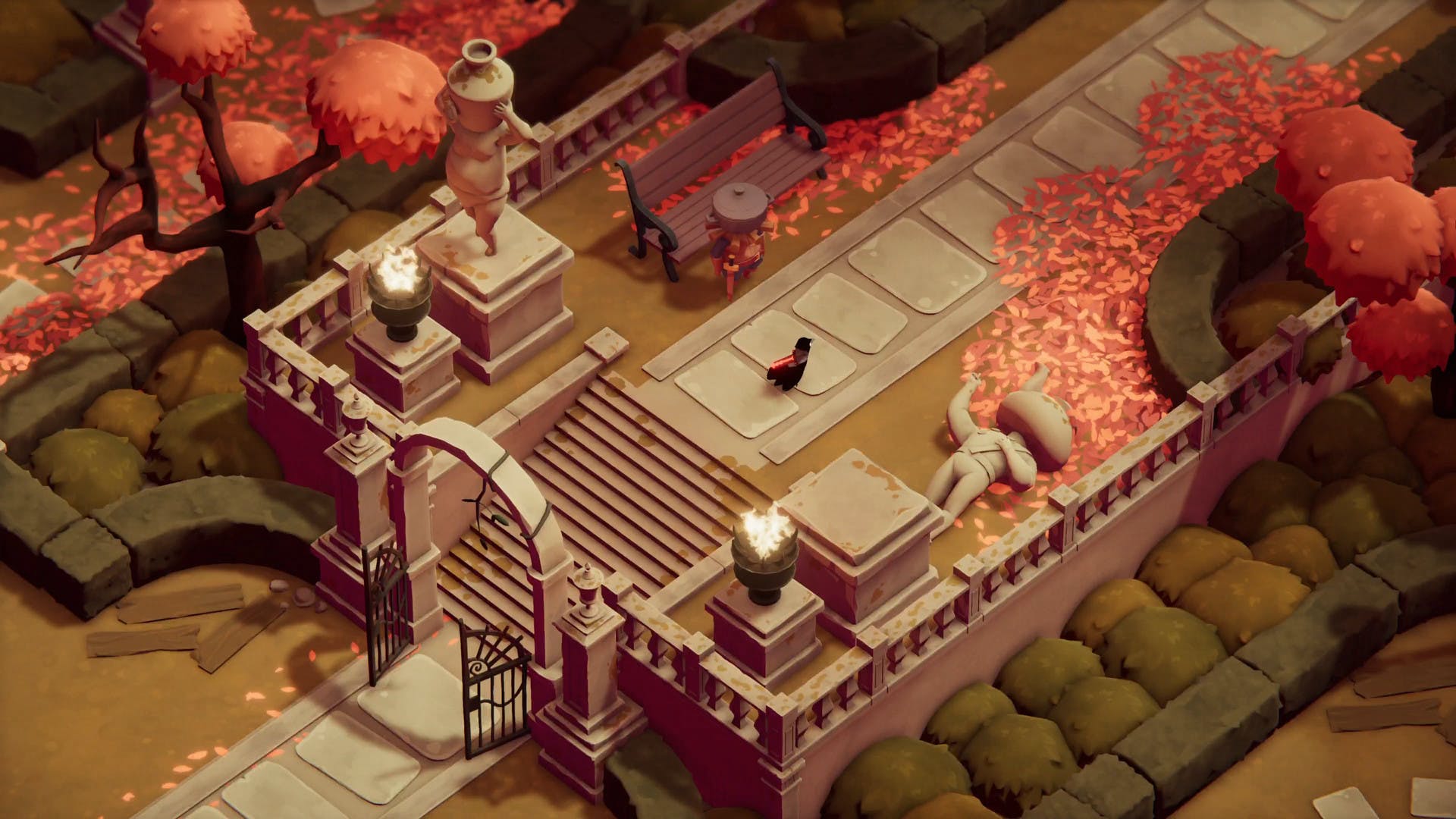
I’ve never been a “video games have taught me a lesson” guy. Death’s Door didn’t change that. But watching its funerals, the exchange of pretty lies as they can sometimes be, felt cathartic in a moment where I was struggling with how to show proper humility and dignity towards one of my life’s own villains. There’s no bringing him to “justice” even when he was alive, and such a basic idea has no place here. But closure is possible, and in that way a funeral is just as much to preserve the memory of the dead as it is to serve as a good stopping point for those of us who live in their wake. We bury the Urn Witches, and celebrate the grandmas.





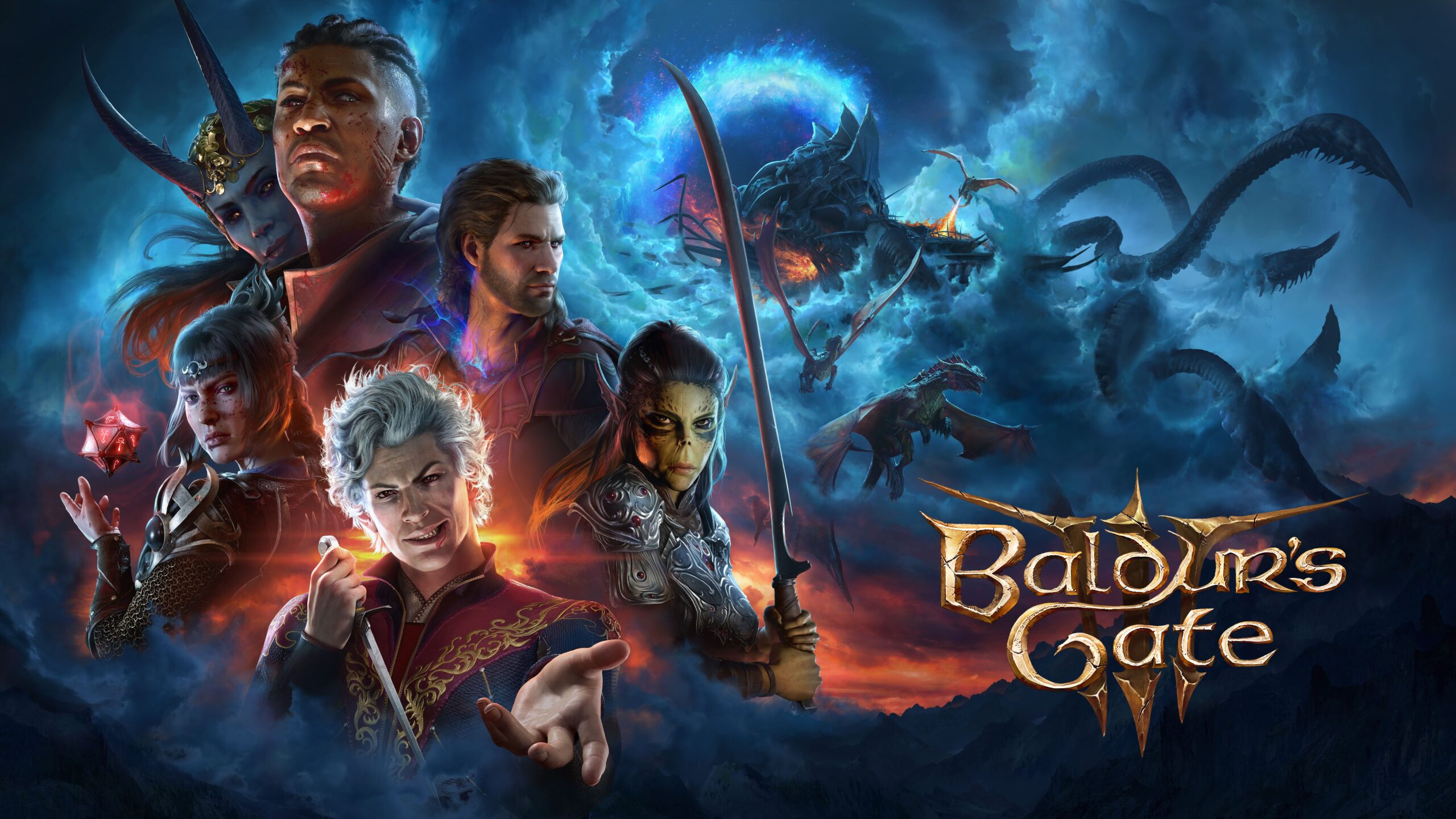
1 thought on “Death’s Door Lets Its Villains Die With Dignity”